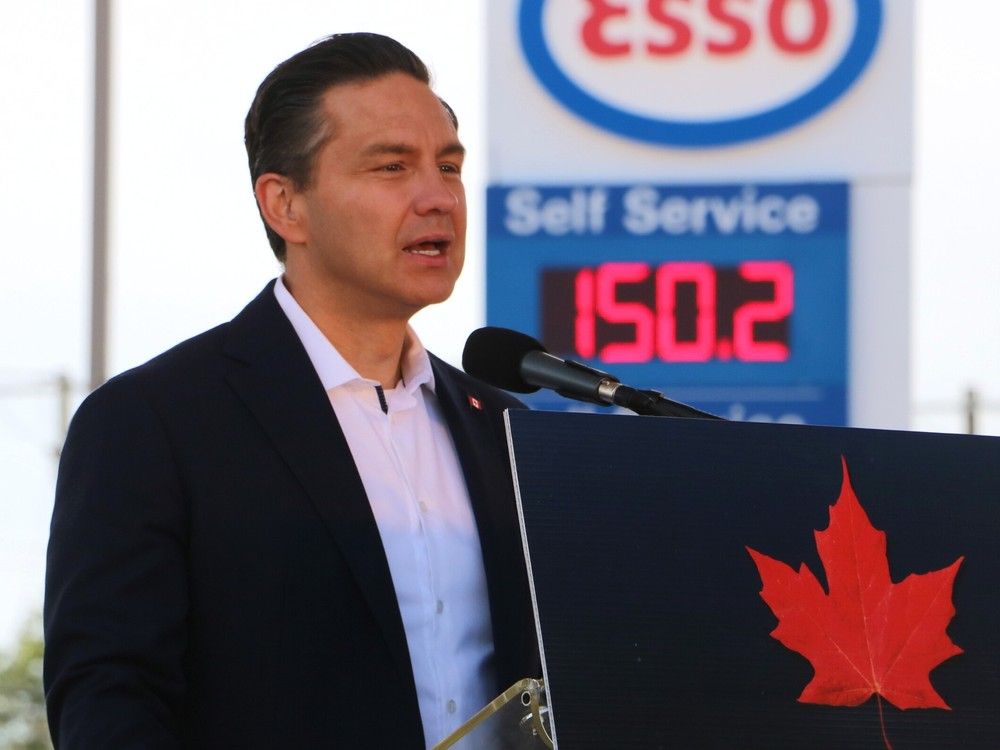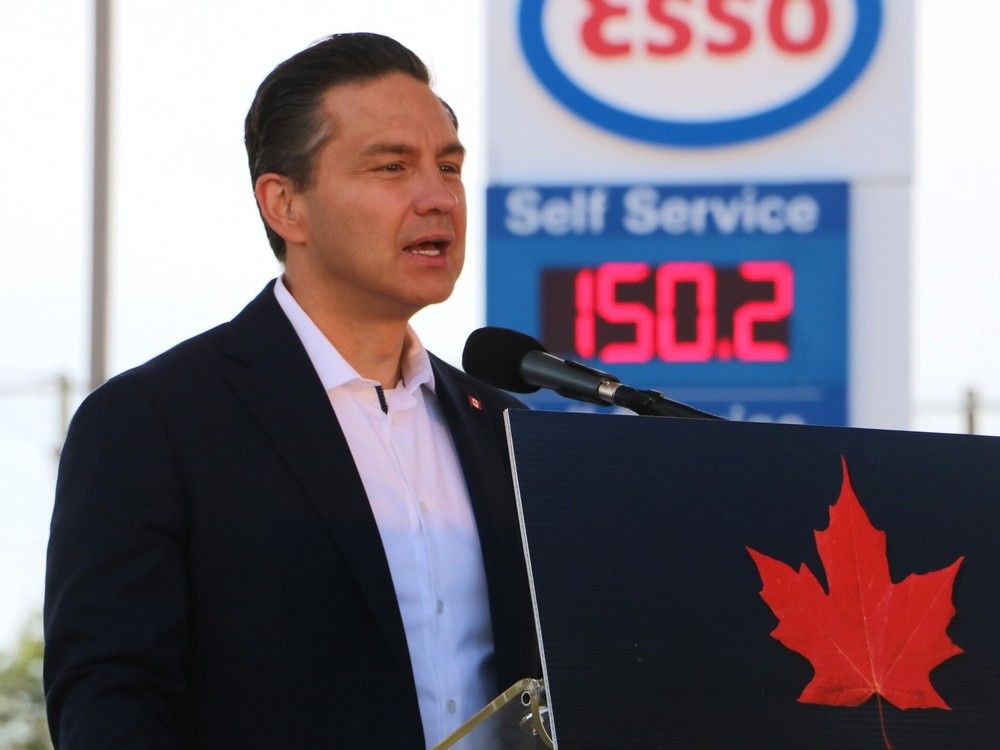
OTTAWA
— Although Conservative Leader Pierre Poilievre never got the “carbon tax election” he wanted, he is nevertheless sticking to that well-trodden ground by branding another Liberal environmental policy with the same label.
His announcement in Charlottetown on Wednesday, that Canadians should view a set of regulations applied to fossil-fuel suppliers as “the carbon tax 2.0,” illustrates two central questions the Conservative leader faces.
How much can he stick to the hits versus playing a new tune?
And, more importantly to Poilievre’s political fortunes: Can the Conservative leader prove he is back in the saddle against the new sheriff in town
—
or is he a one-trick pony?
Poilievre recently took the first step in his new political journey by winning a byelection in rural Alberta, securing his return to the House of Commons by capturing nearly 81 per cent of the vote, which was the same commanding terrain as past Conservative MPs in the riding.
Before appearing in Charlottetown on Wednesday, he made a swing through Halifax in what was the first visit he made to the province since the April federal election, which saw Prime Minister Mark Carney lead the Liberals to the party’s fourth consecutive victory over the Conservatives since 2015.
During his remarks, Poilievre evoked Trudeau’s ghost to warn those watching that while Carney promised he would be different, “he has in fact been worse.”
He pointed to grocery prices that remain stubbornly high and a federal Liberal government that spends too much.
Prosecuting the Liberals’ record on the cost-of-living will be part of Poilievre’s playbook against Carney, the same as it was under Trudeau.
One disadvantage now is that he is without his signature “axe the tax” rallying cry, which became emblematic of larger cost-of-living struggles.
That campaign met its end after Carney quickly scrapped the signature Trudeau policy of charging consumers a carbon tax on everyday fuels, such as gasoline.
Poilievre made a point on Wednesday of claiming victory over that fight
— something some Conservatives feel he could have done more forcefully during April’s federal election, when it was clear that the carbon tax battle was over, and with more Canadians instead focused on the economic threats coming from U.S. President Donald Trump.
On Wednesday, standing in front of a gas pump in Charlottetown, it was clear that Poilievre is not done with the carbon tax yet.
The announcement itself was nothing new: Conservatives have long opposed the set of fuel regulations that came into effect in 2023. Poilievre pointed to a report from the Parliamentary Budget Officer from that year, which said it would increase the cost of gas by 17 per cent per litre by 2030.
For some Tories, his message was fundamentally about affordability, a bread-and-butter issue for the federal party that remains very much alive in regions across the country, including in Atlantic Canada.
Branding that message as “the carbon tax 2.0” could be viewed as a practical decision and reminder to consumers that they still find themselves paying money in the end, which was the case under the now-defunct consumer carbon tax.
For other Conservatives, his decision to revive the carbon tax was too much of a reminder of the past and sent a glaring signal, including to Poilievre’s own caucus, that he was out of ideas, at a time when supporters are looking for him to demonstrate a capacity for change and relevance with Canadians.
“He’s becoming a caricature of himself,” one senior Conservative said, speaking on background.
As for the policy itself, getting Canadians to care about a set of regulations whose impact on consumers remains largely opaque to consumers does not bode well for Conservative hopes of seeing a surge of support for any future campaigns to axe the “carbon tax 2.0.”
Poilievre has spent his summer taking aim at other Trudeau-era environmental policies that remain on the books, namely the federal electric vehicle mandate, which he has vowed to fight through a nationwide campaign,
as well as the industrial carbon tax, both of which Conservatives have long opposed.
Carney has been pushed on these issues, especially the EV mandate, which has been the subject of mounting criticism from the auto industry. It also does not come without risk for a prime minister whose coalition includes climate-minded progressives.
Predicting what Carney will do is another challenge for Poilievre. He acknowledged as much in an
where he said Trudeau was the type who “
dug in,” while his successor “is a mystery.”
Poilievre also made a point on Wednesday to remind Canadians that he has been right before.
He said “everyone dismissed” the Conservative campaign against the consumer carbon tax, before adopting it themselves.
For Poilievre, who rode discontent about the carbon tax to both an unprecedented polling lead and a crushing electoral loss, it’s just a matter of which chapter of history he finds himself repeating.
National Post
Our website is the place for the latest breaking news, exclusive scoops, longreads and provocative commentary. Please bookmark nationalpost.com and sign up for our daily newsletter, Posted, here.
